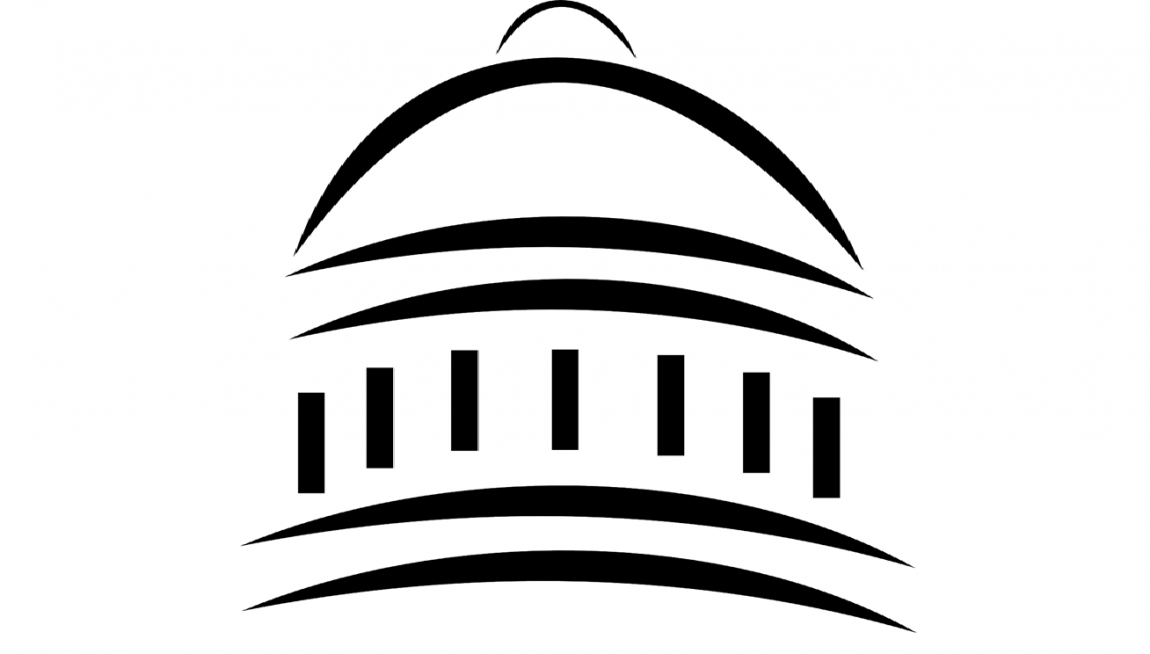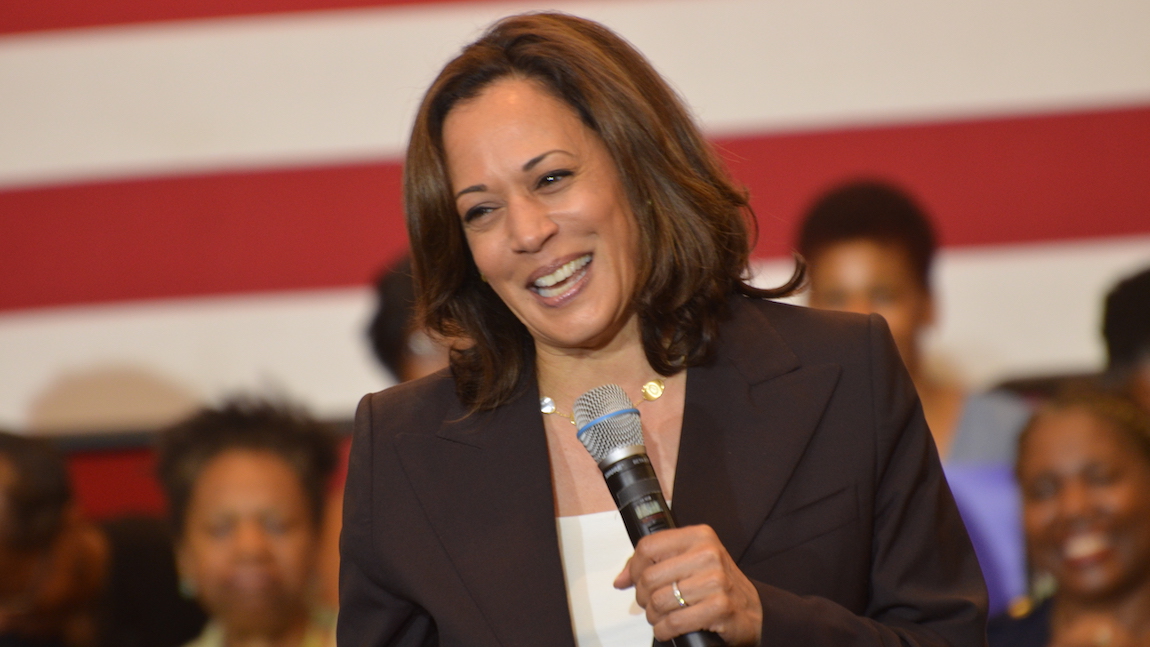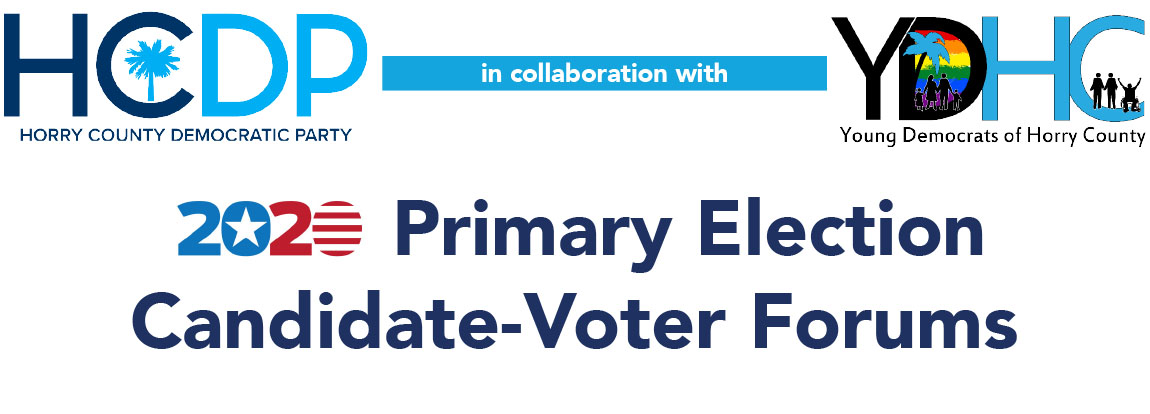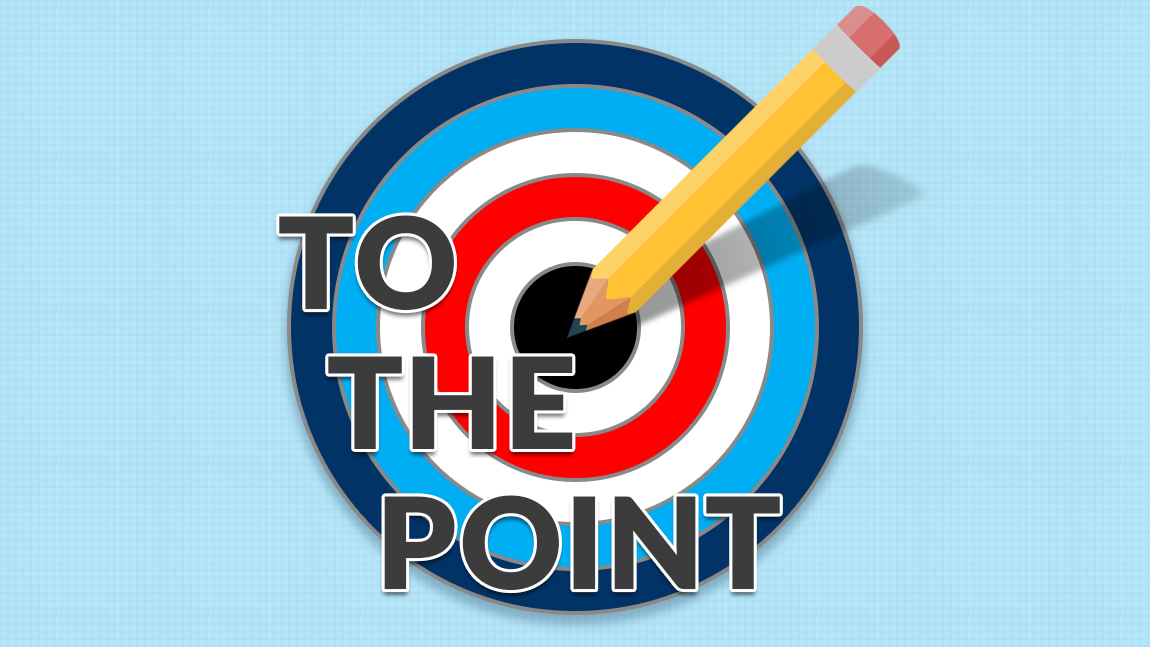By David Higham
HORRY COUNTY GOVERNMENT / LOCAL ISSUES
COVID-19: South Carolina public health officials confirmed 36 new coronavirus cases and three additional deaths on August 20 in Horry County. This brings the county cases to 8,955 since mid-March, along with 166 total deaths. During the third week of August 2,054 coronavirus tests were administered in Horry County, and 16.1 percent tested positive according to SC Department of Health and Environmental Control. (MyrtleBeachOnline 8/20/2020)
Horry County School’s Update: Coronavirus activity in Horry County has dropped to levels that would allow schools to reopen with some in-person classes, according to the latest state health department data. Horry County is now one of seven SC counties listed as medium spread in the SC Department of Health and Environmental Control’s (DHEC) latest report. Counties with medium activity, like Horry County, will have hybrid schedules with students split into two groups, and each group going to school two days per week with distance learning the other three days. If, between now and August 31 Horry County’s COVID activity decreases, it is possible students could return to full, face-to-face instruction. Conversely if Horry County COVID activity moves back toward a high rating then the district’s plan would require all instruction be held remotely. Horry County schools are scheduled to re-open September 8. (MyrtleBeachOnline 8/17/2020)
Myrtle Beach Speedway’s farewell event may have violated Governor’s Order: It is estimated that more than 3,000 people – riders, crew, staff and spectators – attended the 62-year-old speedway for its final race on August 15, violating Governor Henry McMaster’s executive order limiting attendance to 250-persons. Reportedly the Governor’s office is investigating. (Post and Courier newspaper 8/16/2020)
Report finds “Substantial Disconnect” between what people make, can afford: According to the 2018 American Community Survey from the US Census Bureau, the median household income in Horry County is $48,279; with the median cost of rent at $939 and a median mortgage payment at $1,269. A Horry County resident would have to make $19.17 per hour to afford a two-bedroom apartment without being “cost-burdened”, defined as spending more than 30% of income on rent. The “mean wage” for Horry County renters is around $11 per hour according to state data. Bryan Grady, chief research officer at the SC State Housing Finance and Development Authority, fears that it’s possible that the Myrtle Beach area will start to follow in the footsteps of Hilton Head Island, where it’s not uncommon for workers to commute 40-50 miles to work each day. The Myrtle Beach city council recently approved the creation of an advisory board on developing “workforce housing”, meant for people of moderate income. (MyrtleBeachOnline 8/22/2020)
License Plate Readers: The Horry County Council voted to shift $100,000 towards implementing a license plate reader program for county police. The system would install license plate readers on major county routes, such as S.C. 31 and S.C. 22. Police will use the system to identify vehicles connected to crimes and other public safety endeavors. (MyrtleBeachOnline 8/19/20)
STATE / SC LEGISLATURE
SC Senate Plans Early Return: The SC Senate will reconvene in the first week of September – earlier than initially anticipated – to deal with election issues such as expanding absentee voting options amid the coronavirus pandemic. House leaders said their chamber is planning to stick by plans to return September 15.
SC Election Commission Executive Director Marci Andino has written a letter to top legislators recommending several actions they could take to avoid “serious problems” in the November general election, including reinstating the “state of emergency” reason for voting absentee that allowed all voters to cast their ballots by absentee in the June primaries. Andino also suggested letting voters apply for an absentee ballot online, removing the witness signature requirement, allow the use of drop boxes for returning absentee ballots, giving election officials more time to process absentee-by-mail ballots and certify elections, and limiting curbside voting to designated locations instead of every polling site. (Post and Courier newspaper 8/17/2020)
Allocation of COVID Aid before Legislators: When the SC Legislature reconvenes in September it will consider committee recommendations for the allocation of $668 million remaining from $1.9 billion the federal CARES Act sent South Carolina for COVID-19 reimbursement to state agencies and local government. (Post and Courier 8/13/2020)
Committee action to date includes:
The state Senate Testing and Tracing Subcommittee has been meeting over the summer to establish what DHEC and other healthcare providers need from the state legislature to increase testing and improve contact tracing efforts. Dr. Joan Duwve, the acting director of public health for DHEC, testified before the subcommittee that her goal is to test as much as 10 percent of the state’s population per month by the end of the year. She said many states are currently testing at that rate. (ABC 15 News 7/29/2020)
In the SC House of Representatives, the CARES Act Ad Hoc Committee will meet virtually on August 26, September 2, and September 9 to review federal pandemic aid spending so far in the state, and consider further expected expenses. (Statehouse Report 8/21/2020)
Fewer COVID-19 Cases as Testing Declines: Daily coronavirus case counts have been trending down in recent weeks, but the SC Department of Health and Environmental Control warned that could be happening, in part, because fewer people are getting tested for the virus. The state averaged nearly 11,000 coronavirus test per day in July, but that average has rapidly declined in August to about 8,000 – with some days seeing as few as 3,874 – according to DHEC. State officials also point out that the percentage of tests coming back positive are still high (16.4 percent) compared to a national rate of 8.7 percent.
“When we’re still seeing those high levels of percent positive rates, I think it still suggests to us that there are a lot of cases out there going unidentified and there is a lot of disease going around,” DHEC’s Dr. Brannon Traxler said.
Testing and identifying infected individuals are keys to preventing new outbreaks, DHEC Director of Public Health Joan Duwve said, but fewer South Carolinians are getting themselves checked. (Post and Courier 8/18/2020)
State public health officials acknowledge it is regularly taking more than a week for South Carolinians who waited in line to get a test to learn the results, making them essentially useless. Those delays amid a surge in testing are consequently deterring people from lining up to get checked, helping to explain why there has been a weekslong backslide in testing, Dr. Duwve said. (Post and Courier, 8/14/2020)
South Carolina’s testing per capita has improved from 46th to 33rd nationwide. But legislators are saying that it is still not nearly good enough in a state with one of the nation’s highest COVID-19 infection rates. If there are national shortages in testing supplies, clearly other states facing the same problems have found workarounds South Carolina needs to copy, according to Senator Vincent Sheheen (D-Camden). Asked what successful states are doing, Marshall Taylor, DHEC’s acting director, replied, “I don’t have an answer for you.” (Post and Courier 8/13/2020)
Legislators Asked Not to Create New State Spending Plan: Governor Henry McMaster asked legislators not to create a state budget next month (September) as planned and instead keep government running at last fiscal year’s spending levels while the economic outlook remain uncertain. (Post and Courier 8/21/2020) However the state Senate may have other plans. A spokesman for Senate Finance Committee chairman Hugh Leatherman, R-Florence, said Leatherman plans to move forward with passing a new budget for the fiscal year that started July 1. (The State newspaper 8/20/2020)
The state’s previously expected $1.8 billion surplus “evaporated almost overnight.” McMaster said during a cabinet meeting that was held virtually. When 2020 began, there was broad support for making a “transformative investment” in education including raising teachers’ salaries and extending full-day kindergarten for 4-year-olds statewide. (Post and Courier 8/21/2020)
State’s “Academic Recovery Camps” poorly attended: The SC Department of Education planned to provide in-person help for 10,000 struggling kindergarten through third graders, so they could catch up on their studies this summer. However, only 3,500 students attended classes in-person as of the latest tally. As coronavirus cases went up this summer most students opted to go to virtual instruction. (The State newspaper 8/13/2020)
Coronavirus Doc says Governor’s Office misled public: The doctor who has overseen much of South Carolina’s response to the coronavirus pandemic says Gov. Henry McMaster’s staff misled the public about her position on reopening restaurants to indoor dining, as well as barber shops and close contact businesses. State epidemiologist Linda Bell said she regrets not speaking more forcefully about her agency’s positions on COVID-19 policies, according to internal Department of Health and Environmental Control documents obtained by The State newspaper. (The State newspaper 8/8/2020)
Jobless Rate: The number of South Carolinians filing for initial unemployment benefits increased slightly during the second week of August, breaking a trend that saw the number of claims decline for four straight weeks. Still, the number of new filings represents a rate that is three times higher than what the state experienced prior to the pandemic. In the last 21 weeks the total number of initial unemployment claims statewide has risen to over 712,000 according to SC Department of Employment and Workforce spokesperson Heather Biance. (WCSC August 13, 2020)
According to Courier and Post reporting, “The bigger issue for the state is the number of people who lost their jobs earlier this year and are still out of work. Data collected by the U.S. Department of Labor shows there were nearly 160,000 South Carolinians in that position at the beginning of August. For perspective, the 160,000 people certifying their jobless claims is still far larger than anything South Carolina managed during the Great Recession”. (Post and Courier 8/21/2020)
The state’s official unemployment rate remained above 8.5 percent in July. And the jobless can no longer benefit from an infusion of cash from the federal government. The federal government has stopped paying an extra $600 per week to Americans receiving unemployment benefits. And trillions of dollars in additional aid that the federal government paid out through grants, loans and stimulus checks have also run out recently as Congress cannot break a logjam in authorizing new relief legislation. (Post and Courier 8/22/2020)
Tourism Sector Hit Hard: South Carolina’s tourism sector has so far amassed a $4 billion drop in visitor-related revenue compared to last year. It represents a 47 percent year-to-year reduction, according to the SC Department of Parks, Recreation and Tourism. (Post and Courier 8/15/2020)
SC Among Worst Places to have a baby: WalletHub reported South Carolina is 49th for best places to have a baby – making the state second to last in the nation. (Alabama is last according to the study’s measurements.) Among the data cited in the report was the 2019 DHEC report on infant mortality, full weight birth rates and childcare centers per capita. (Statehouse Report 8/14/2020)
FEDERAL / US CONGRESS/ NATION
Virus is now No. 3 Killer in U.S.: Over the past 3 weeks in August the US has averaged more than 1,000 COVID-19 deaths per day. “COVID is now the No.3 cause of death in the US – ahead of accidents, injuries, lung disease, diabetes, Alzheimer’s, and many, many other causes,” said Dr. Thomas Frieden, a former director of the Center for Disease Control and Prevention. (CNN 8/17/2020)
Pandemic Relief Legislation Stalled: Congress left Washington in August without any agreement on pandemic relief legislation. The two parties remain wide apart, with Senate Democrats initially supporting a $3.4 trillion package that passed the House three months ago, while Senate Republicans support a much smaller package costing $1 trillion.
In negotiations Senate Democrats dropped their proposal to $2 trillion and asked Republicans to meet them at that halfway point, but that was rejected by Senate Republicans. (ABC News 8/18/2020) President Trump suggested in an interview on August 13 that he is unwilling to strike a deal with Democrats on pandemic relief that includes desperately-needed money for the ailing U.S. Postal Service, only to say later in the day that he would not veto a bill that included funding. (ABC News 8/13/2020)
Unemployment Benefits Sticking Point: As part of the pandemic relief legislation, Democrats want to continue the $600 unemployment benefit boost until early next year, while Republicans proposed cutting the enhancement to $200 for at least two months and then to 70% of the jobless person’s former wage. Recently Senate Republicans drafted a scaled-back measure that would provide a $300 weekly supplement, and pressure is building on Democrats to accept a more limited proposal. Millions of laid-off Americans now rely only on state unemployment benefits, a weekly cut of at least half in every state.
After lawmakers were unable to agree on continuing an enhanced payment earlier this month, President Trump announced that he would redirect federal disaster aid to provide the jobless with $300 a week if states put up an additional $100. The Department of Labor later said states could count their existing unemployment payments toward the required match.
But it could take several weeks before the unemployed see any money because states have to apply for the lost wages assistance grants and set up programs to administer the program since it’s not part of the traditional unemployment program. Even then, the $44 billion allotment is expected to last only four or five weeks, according the Federal Emergency Management Agency (FEMA), which is administering it. (CNN 8/2/2020)
So far, 19 states have applied, and 15 states have been approved by FEMA to begin setting up the program. According to the SC Department of Employment and Workforce, South Carolina is “asking for clarification on a few points before applying”. (WCSC 8/22/2020; Moneywatch 8/20/2020)
Recovery is Slowing: On August 20, the federal government reported that 1.1 million people had applied for new state unemployment benefits. That was up 135,000 from the week before, and higher than expectations. “Every passing week without meaningful (relief) legislation lengthens the mini-recession”, said Bank of America’s top global economic Ethan Harris. (Moneywatch, 8/21/2020)
Reversing Postal Service Cutbacks: On August 22 as this legislative update was being written, members of the House were preparing to vote on legislation to allocate $25 billion to the US Postal Service and ban operational changes that have slowed mail service around the country. The draft bill would require all election-related mail, including ballots, be treated as first-class mail to ensure priority delivery. Earlier Postmaster General Louis DeJoy said that he would halt policy changes at the USPS, including cutting overtime for employees, limiting post office hours, and removing some high-volume mail sorting machines form USPS facilities. Democrats argue the policies were intended to impede mail-in voting ahead of the November election. House Speaker Nancy Pelosi, in a letter to members said DeJoy’s decision is “wholly insufficient and does not reverse damage already wreaked.” (Roll Call newspaper 8/19/2020; CNN 8/22/2020)
THE COURTS
Absentee Ballots: The US Supreme Court ruled that it will not intervene in a legal fight concerning absentee ballots in Rhode Island, meaning the state’s order removing a requirement that absentee ballots must be signed by two witnesses or a notary public will stand. The ruling is a loss for the Republican National Committee. According to the R.I. secretary of state, the order means the state will begin sending out absentee ballots for its September primary. (CNN 8/13/2020)
In Nevada, the Trump campaign filed a lawsuit against the state over its plan to send absentee ballots to all active voters this November in a major expansion of mail-in voting in the battleground state. Earlier this month the Democratic-controlled Nevada state legislature passed a sweeping election bill, allowing election officials to send absentee ballots to every “active registered voter” in the state, and allowing mailed-in ballots to be counted if they arrive one week after November 3. (CNN 8/5/2020)
Court Re-Writes Ballot Summary: A Missouri judge rewrote the summary for a legislative redistricting measure that will appear on the November ballot, ruling that the state’s Republican-led Legislature tried to misleadingly entice voters into repealing an anti-gerrymandering reform that voters approved two years ago. Joyce ruled that the summary wrongly failed to tell voters that Amendment 3 “would eliminate the legislative redistricting rules Missourians overwhelmingly adopted just two year ago to combat political gerrymandering and replace them with a redistricting process similar in substance to the one they just voted to abandon.” The decision by the Cole County circuit judge struck down the Legislature’s ballot summary for Amendment 3 as insufficient, unfair, and partly false. She replaced it with a ballot summary suggested by a group that sponsored the successful 2018 measure and is opposed to this year’s revision. (ABC News 8/17/2020)
Democrats warn Republicans not to fill a possible Supreme Court vacancy this year: Senator Tim Kaine (D-VA) in an interview said confirming a Supreme Court nominee of President Trump this year could compel Democrats to consider adding seats to the high court. He said that adding seats to the high court is “a statutory option that we have that’s fully constitutional in our availability”. (NBC News 8/3/2020)
Steve Bannon, Others, Charged for Wire Fraud and Money Laundering: Federal prosecutors unsealed indictments against onetime presidential aide Steve Bannon and three others on charges of taking money donated to help build a wall along the southern border. Prosecutors said the defendants took hundreds of thousands of donated dollars and used them for personal expenses. Bannon has pled not guilty to the charges. The defendants’ online crowdfunding campaign “We Build The Wall” raised more than $25 million, while falsely assuring the public that the campaign was organized by volunteers who would not take a salary. (NBC News 8/20/2020)
Court Schedules hearing on COVID-19 relief funds directed to private schools tuition: The SC Supreme Court agreed to hear arguments in the lawsuit over Governor Henry McMaster’s decision to spend $32 million of federal coronavirus relief funds on grants to help students afford private school tuition. The justices scheduled oral arguments in the case for September 18. (Post and Courier 8/21/2020)
State High Court to weigh in on Heritage Act: The South Carolina Attorney General’s Office has asked the SC Supreme Court to rule on whether the Heritage Act protecting Confederate memorials is constitutional. The law, passed in 2000 as a compromise for the Confederate flag’s removal from atop the statehouse dome, regulates removal from public property of other flags or memorials for any war, historic figure, or event. It likewise protects the names of roads and buildings from being replaced. Doing so requires a two-thirds vote of the Legislature. (Post and Courier 8/14/2020)
Questions? Contact David at dhigham32@gmail.com
Stay safe everyone






